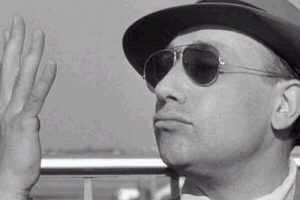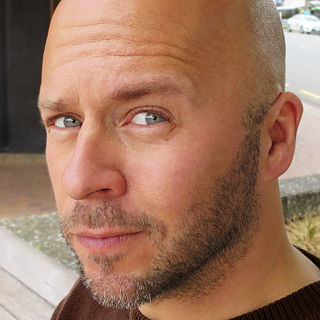A Quote by John Galt
Man has been called a rational being, but rationality is a matter of choice-and the alternative his nature offers him is: rational being or suicidal animal. Man has to be man-by choice; he has to hold his life as a value-by choice; he has to learn to sustain it-by choice; he has to discover the values it requires and practice his virtues-by choice. A code of values accepted by choice is a code of morality.
Related Quotes
Man has been called a rational being, but rationality is a matter of choice... Man has to be a man-by choice; he has to hold his life as a value-by choice; he has to learn to sustain it-by choice; he has to discover the values it requires and practice his virtues by choice. A code of values accepted by choice is a code of morality.
A choice is the root of all morality. Without choice, one can have no moral code. In a vacuum bereft of alternatives, there can be no values. And without values, there can be no reason for a code of ethics. What gives our lives meaning is which alternatives we choose. If we have no options, if we can take but one path, we are by definition slaves.
A mission is not just a casual thing-it is not an alternative program in the Church. Neither is a mission a matter of choice any more than tithing is a choice, any more than sacrament meeting is a choice, any more than the Word of Wisdom is a choice. Of course, we have our free agency, and the Lord has given us choices. We can do as we please. We can go on a mission or we can remain home. But every normal young man is as much obligated to go on a mission as he is to pay his tithing, attend his meetings, keep the Sabbath day holy, and keep his life spotless and clean.
One could even argue that we have a duty to create and pass on stories about choice because once a person knows such stories, they can't be taken away from him. He may lose his possessions, his home, his loved ones, but if he holds on to a story about choice, he retains the ability to practice choice.
Man has risen, not fallen. He can choose to develop his capacities as the highest animal and to try to rise still farther, or he can choose otherwise. The choice is his responsibility, and his alone. There is no automatism that will carry him upward without choice or effort and there is no trend solely in the right direction. Evolution has no purpose; man must supply this for himself. The means to gaining right ends involve both organic evolution and human evolution, but human choice as to what are the right ends must be based on human evolution.
Raymond Aron ascribes to Weber the view that 'each man's conscience is irrefutable.' ... while [Weber] holds that an agent may be more or less rational in acting consistently with his values, the choice of any one particular evaluative stance or commitment can be no more rational than any other. All faiths and all evaluations are equally non-rational.


































